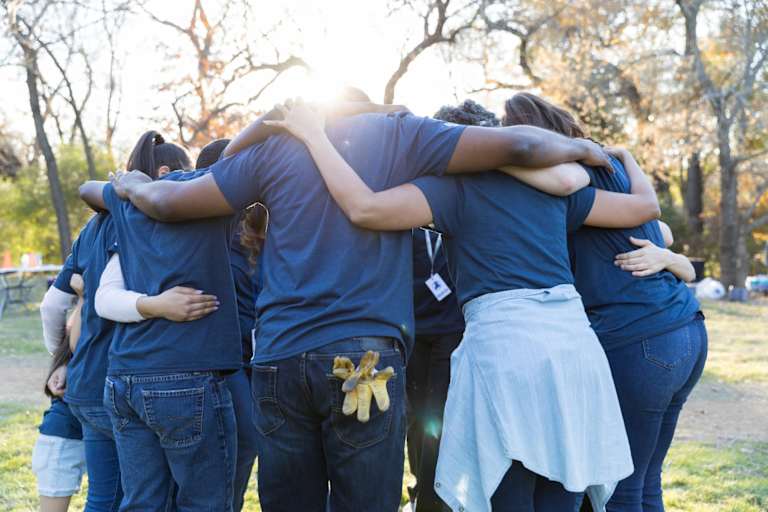MSW vs. MSSW vs. MSSA: Which Social Work Degree Is Right for You?
If you’re interested in meaningful work that allows you to connect with individuals, families, and communities, then a graduate degree in social work might be a great path to pursue.
As you explore the field, you might notice differences in the names used for different master’s degrees in the field: master of social work (MSW), master of science in social work (MSSW), and master of science in social administration (MSSA).
This may seem confusing at first, but it’s important to know that there are more similarities than differences within these programs, and all lead to meaningful academic credentials that can lift you into a rewarding career in social work.
Read on to learn more about the MSSW vs. MSW vs. MSSA, and how you can choose among them to help make the best choice for your future career goals.
MSW vs. MSSW vs. MSSA: A Side-by-Side Comparison
These three degrees can get a little complicated to sort out. This comparison illustrates that these degrees are actually more alike than different, although there are a few distinctions among them.
| MSW | MSSW | MSSA | |
|---|---|---|---|
| Length of Program | 60 credits, generally completed in two years of full-time study | 60 credits, generally completed in two years of full-time study | 60 credits, generally completed in two years of full-time study |
| Training Format | Both online and in-person options available, with 900-1,200 hours of fieldwork, usually in person | Both online and in-person options available, with 900-1,200 hours of fieldwork, usually in person | Both online and in-person options available, with 900-1,200 hours of fieldwork, usually in person |
| Number of Accredited Programs | Numerous programs to choose from | Less common to find MSSW programs | Less common to find MSSA programs |
What Does MSW Mean? Key Details on Education and Professional Outlook
An MSW is the most commonly issued graduate social work degree and prepares you for numerous opportunities within the field. The world of social work opens up to people who receive their MSW, meaning you’ll build on your undergraduate education and dive into more complex topics such as clinical theory, research methods, and human behavior.
An MSW program typically takes two years to complete for full-time students, and includes both coursework and a practicum, in which you gain hands-on experience working within the field.
So what does the program consist of? While all schools have their own unique admission requirements, there are some general similarities for all MSW programs. You will generally need a bachelor’s degree from an accredited institution. While a bachelor’s in social work (BSW) isn’t a requirement, it’s still an important credential that may allow you to more quickly complete your MSW, meaning you may study for one-year instead of two.
No matter the path you choose, it is important to select a program that is accredited by the Council of Social Work Education (CSWE), which ensures your program has been well-vetted and meets the requirements for future state licensure.
Depending on your needs and preferences, you can consider an MSW program that is held in-person or online. Online MSW programs may allow for more flexibility, though field work will often still be held in person. If you are one of many wondering how to pay for college, there are specialized scholarships for social work majors.
What Can You Do With an MSW?
MSW graduates are able to pursue numerous careers within the field, including as case managers, therapists, or program coordinators. Many MSW jobs will allow you to gain the necessary hours and supervised experience necessary to pursue state licensure, which allows you to practice clinical social work independently. Below are some examples of careers that MSW graduates might pursue.
Clinical Social Worker
These professionals help people overcome obstacles like unemployment, divorce, illness, and substance use. Guidance can occur one on one or in a group setting, helping clients solve psychological, mental, emotional, and/or behavioral issues. While an MSW prepares you for clinical practice, you’ll need to work under supervision until you earn your state licensure.Healthcare Social Worker
These social workers help individuals and their families understand diagnoses, navigate the medical system, and connect to resources. They might work in a hospital, clinic, or outpatient practice.Social and Community Service Manager
These managers take on leadership positions at community and social work organizations, supervising staff and overseeing operations.Child and Family Social Worker
These social workers work with children and their families to provide counseling, advocate and connect to important community resources.
What Is an MSSW? Key Details on Education and Professional Outlook
When comparing MSSW vs. MSW, the two degrees are essentially the same. While the terms are different, you’ll find that the program requirements, curriculum and career goals are largely similar. Like with the MSW, you’ll complete coursework in areas such as clinical theory, human behavior, research methods, and social policy, and also complete a hands-on field practicum. MSSW programs are also accredited by the CSWE and are included in the same database as MSW and MSSA programs.
Career prospects and opportunities with an MSSW are similar to your opportunities with an MSW. You might find yourself working with individuals, families and/or communities in a wide range of settings.
What Is an MSSA? Key Details on Education and Professional Outlook
An MSSA is largely similar to both the MSW and MSSW, though it’s less common than the MSW. As with both programs above, you’ll complete coursework and hands-on field education experience and be able to pursue numerous career opportunities. You may choose to specialize in a certain concentration, such as a larger focus on macro social work or policy.
Frequently Asked Questions About MSSW vs. MSW vs. MSSA Social Work Degrees
MSW stands for master of social work, which is a master’s-level graduate degree preparing you to enter the social work field to help individuals, families, and communities.



